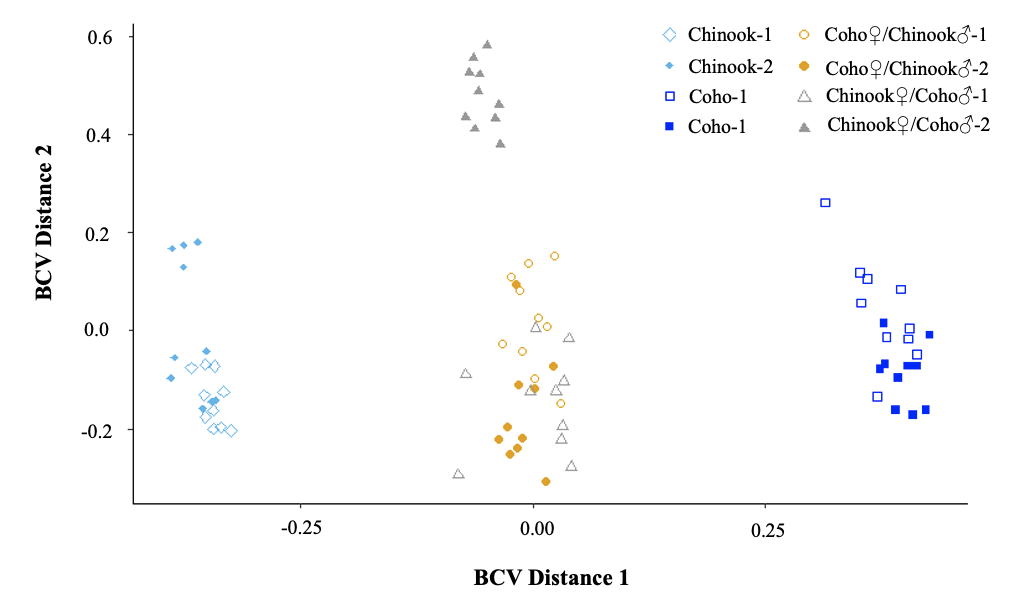New UBC study raises concerns about the downstream consequences of interbreeding between Chinook and Coho salmon
Sister species of anadromous Pacific salmon—the Chinook and Coho salmon—can readily display breeding behaviors, mate and produce viable hybrid progeny, according to new research published in the Proceedings of the Royal Society B.
The lab study indicates interbreeding can be intentional and could become a concern during times when both species are mating in proximity.
“This highlights the potential for gene flow between Chinook and Coho salmon as these species continue to respond to climate change with unpredictable shifts in migration timing and habitat use,” says Dr, Jessica L. McKenzie, a former University of British Columbia zoologist and lead author on the paper. “More so, our genetic analysis of the hybrid offspring raises concerns around their potential fitness.”
Previous studies have shown that Chinook-Coho hybrids often have visible deformities distinguishing them from either parental species. Using RNA sequencing, Dr. McKenzie and colleagues found evidence for extreme over-/under-expression of a specific set of genes, called nuclear-encoded mitochondrial genes, in the hybrid progeny.
Nuclear-encoded mitochondrial genes are encoded in the nucleus but must function in the mitochondria, a cellular organelle inherited only from the maternal species which possesses its own small genome.
Previous research in other systems has demonstrated that hybrids often experience declines in fitness because the nuclear genes of one parental type can't function properly with the mitochondrial genes properties of the other parental type.
“While we don’t know the exact downstream impact, we need to further study to conclusively determine the full extent of the fitness consequences imposed on the hybrids as a result of such mito-nuclear mismatch,” says Dr. McKenzie.
She adds, “The results of this study have a broad impact in a range of disciplines as it addresses a contemporary issue of both ecological and evolutionary importance being faced by two socioeconomically valuable non-model species, Chinook and Coho salmon. The downstream consequences of extensive hybridization and introgression on the future of these valued species, as well as the ecosystems they inhabit, is unknown.”

Figure 3 (a) Multidimensional scaling plot produced from 6,474 transcripts having expression counts greater than 25 as a function of the biological coefficient of variation (BCV). Un-filled and filled shapes represent individuals from Family 1 and Family 2, respectively.